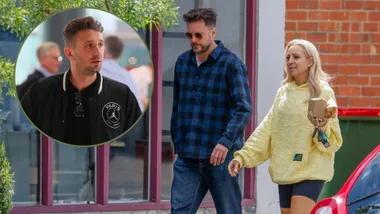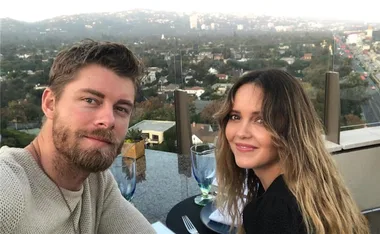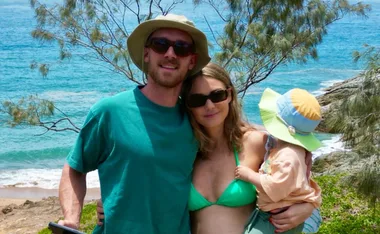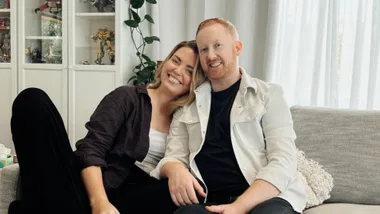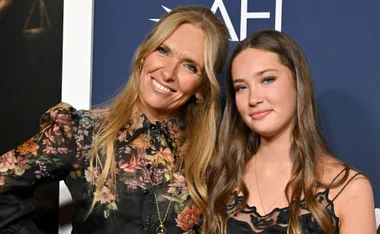It is hard to find people who have not encountered Harry Potter, the loveable bespectacled boy wizard who has wild, unruly black hair and a trademark lightning scar down his forehead – a legacy of his run-in as a baby with the evil, dark, lord, Voldemart. If you are one of those people who have never read a Harry Potter story, you will very soon want to do so, if for nothing else than to stop feeling like a cultural outcast. In the meantime, before you go running to the local bookshop or cinema – Harry Potter is about to appear at a screen near you – you could do no better than read this interview which charts the creation, rise and never-ending huge success of Harry, whilst introducing the charming, brilliant author, J.K. Rowling, whose stories have captivated the hearts and minds of millions.
FACT FILE
A staggering 110 million copies of the Harry Potter books have been sold world-wide. J.K. Rowling’s stories have been published in 200 countries and translated into 47 languages, from Albanian to Zulu.
JK (aka Joanne Kathleen) Rowling was born in 1965 in Chipping in England, but grew up in Chepstow, Gwent. Her parents were avid book lovers who stocked their house with books.
At school, Wydean Comprehensive, Jo’s favourite classes were English Literature, particularly the books of Jane Austen, Paul Gallico and Ian Fleming. She earned a French and Classics degree at Exeter University.
Once she made a start with The Philosopher’s Stone, Jo moved to north Portugal to teach English as a foreign language. She married a local Portugese journalist in 1992 and gave birth to her daughter Jessica in 1993. When her marriage ended, she returned to live in Edinburgh.
JK Rowling has had her fair share of sadness. Apart from her marriage ending, her beloved half French, half Scottish mother died of multiple sclerosis at the age of 45. She has also experienced bad depression at various times in the past.
She has continued to produce, on average, one Harry Potter book a year.
J.K. Rowling was voted author of the year at the 1999 British Book Awards. She was awarded an OBE (Order of the British Empire) for services to children’s literature, last year.
She gave 500,000 pounds of her own money to the National Council For One Parent Families.
Joanne Rowling’s current fortune is estimated at around 300,000 pounds and rising fast.
Q: Is JK Rowling your real name?
JK: My real name is Joanne Rowling. My publishers wanted another initial, so I gave myself my favourite grandmother’s name as a middle name – Kathleen.
Q: Were you encouraged to write as a child?
JK: I didn’t need to be – I was always writing. My parents thought of it as a hobby. I never told them it was all I wanted to do with my life. They wouldn’t have approved – no pension scheme, see!
Q: When did you first get the idea for the Potter stories?
JK: I can remember the day in 1990 as though it is tattooed on my mind forever. The idea came to me whilst I was on one of those long train journeys travelling from the north of England to London. The character of Harry just popped into my head, fully formed. Looking back, it was all quite spooky! I remember being so excited that as soon as the train reached king’s cross Station, I rushed home to jot down this narrative concept on paper before I could forget anything.
Q: Why did you choose the name Harry Potter?
JK: It is completely imaginary. I took his surname form a family I lived near when I was a child, just because I liked the sound of it; and ‘Harry’ has always been one of my favourite Christian names.
Q: If you could be any of Harry Potter character, who would it be and why?
JK: By nature, I am most like Hermione, who is one of Harry’s best friends. Ideally, I would most like to be Professor Dumbledore (the Headmaster of Hogwarts). I’d like his wisdom.
Q: How long did it take you before the first harry Potter story was finished?
JK: It took me five, long, hard years to complete The Philosopher’s Stone.
Q: You were a full-time, working woman, so how did you find time?
JK: My day job was at the charity Amnesty International, doing research into human rights abuses in Africa. The only time I could get to write was during my lunchtimes or in the evenings. After closeting myself away in some of Edinburgh’s cafes for the best part of five years, Harry Potter and the Philosopher’s Stone was eventually completed.
Q: Did you have any rejections when you began writing and if so, how did you cope with them?
JK: I had lots of rejections. But I expected it, so I was already braced for failure. However, I loved Harry so much that I just wanted to get him into print whatever the cost in emotional energy. Fortunately, I found an agent who believed in me. And finally, in 1996, Bloomsbury Publishing signed me up – after much bigger publishers said no: citing such reasons as my first story was too long and complex for children. Look who’s had the last laugh!
Q: How many hours a week do you spend writing Harry Potter and what is your best time for writing?
JK: Sometimes I do ten hour days. Not being a very good morning person, my best time for being really creative is later in the day. In fact I’m areal night owl and my very best ideas come at midnight.
Q: How many re-writes do you do before you get it right?
JK: Loads and loads and loads. The worst ever was 13 versions of one chapter (chapter nine in The Goblet of Fire).
Q: What do you think makes Harry Potter books appealing to younger and older people in all languages and cultures?
JK: I don’t really know. I write primarily for myself and that probably shows in the books. The quirky sense of humour is most definitely mine. My books, of course, are primarily about magic and magic appeals to kids all over the world.
Q: Harry’s sheer courage also appeals to many readers – would you agree?
JK: I would! Although he is full of anxieties, Harry never gives up and gets by on a combination of intuition, sheer nerve and a fair bit of luck.
Q: How do you cope with strongly religious people who have reacted against Harry Potter stories, accusing them of witchcraft?
JK: Mostly I laugh about it and ignore it. I think the Harry books are actually very moral.
Q: Does your daughter, Jessica, read the books before anyone else?
JK: No, though she’s pretty annoyed about that! She’s only seven and I think it would be a horrible burden if I told her the plot secrets. She already gets surrounded in the playground and interrogated!
Q: Why did you set the Harry Potter stories in an exclusive British boarding school?
JK: Wherever I go in the world, children and their parents seem to like the Britishness of the stories, even if they are probably getting an idyllic and rather surreal view of the British public school, system.
Q: The second page of your books always features the Hogwarts school crest with a motto written in Latin – what does it stand for?
JK(laughing): It means ‘never tickle a sleeping dragon’ – good advice!
Q: Readers love the curious wizard sport of Quidditch – for readers who may not be sure what it is, can you help?
JK: Quidditch started in the 11th century at a place called Queerditch Marsh. Originally it was quite a crude game played by wizards on broomsticks, and over the subsequent two centuries they added more balls until it became the game we know now.
Q: Is Quidditch as popular around the world as it is in Britain?
JK: It’s popular everywhere, but not so much in the Far East as they prefer the flying carpet to the broomstick.
Q: What is the most dangerous beast in your stories?
JK: You don’t want to mess with a dragon! Then you have nasty things like the Acromantula and the Alethiafold, which slides under doors at night and suffocates its prey. Personally, that would be my worst one.
Q: What is your favourite beast and why?
JK: I would most like to have a phoenix. They have all sort of interesting properties and they’re very beautiful – not that I’ve ever seen one, they’re very shy.
THE HARRY POTTER FILM
Q: Do you feel the film will take away the imagination and magic from the books?
JK: I hope not! I’m excited about seeing the film, but then no film could ever ruin my favourite books for me.
Q: Are you happy with how your story has been translated for the cinema?
JK: I had some concerns to begin with. When I first started to get film offers I said ‘no’ to all of them. I love good movies, however the vital thing for me was that the studio promised to be true to the book and I have great faith in their commitment to that. The crucial thing is that the integrity of the characters isn’t messed about with.
Q: Are you concerned there are no big American Hollywood stars in the film?
JK: When it comes to Harry Potter, which is mostly set in and around a British boarding school, that’s a good thing. I am particularly pleased that the cast is primarily made up of brilliant British character actors who are just right.
Q: Who are they?
JK: Richard Harris is Professor Albus Dumbledore. Dame Maggie Smith is Minerva McGonagall and Alan Rickman is Professor Snape.
Q: What about the young actor playing Harry?
JK: He is a truly miraculous find. At least 40,000 child actors tried for the role. But when I saw Daniel Radcliffe’s screen test, I knew he would be ideal. Daniel has just the right sense of vulnerability, which is crucial.
Q: I believe some of the cast came to you for advice, which cast member did you enjoy helping?
JK: One of my most enjoyable experiences involved assisting big Scottish actor Robbie Coltrane. When he approached me about his character, gamekeeper Hagrid, I said he’s the sort of guy who when his fierce friends are not around, is quite happy to talk about gardening or child rearing.
Q: Has Harry ever used the internet?
JK: No. He’s not allowed near the computer belonging to his horrible Muggle cousin, Dudley.
Q: Can you tell me anything about the next Harry Potter novel, which will be number five?
JK The title is Harry Potter and the Order of The Phoenix. That’s as far as I am prepared to go at the moment.
Q: What do you hope your books and these film adaptations will achieve?
JK: To inspire people both young and old to use their imagination. And to drive children back to reading books. If I can credit myself with anything, it has been to make it ‘cool’ for young people to start reading again. In this day and age, when books have to fight it out with such diversions as Gameboy and Pokemon for children’s attention, that alone gives me more pleasure than anything!


.png?resize=380%2C285)
